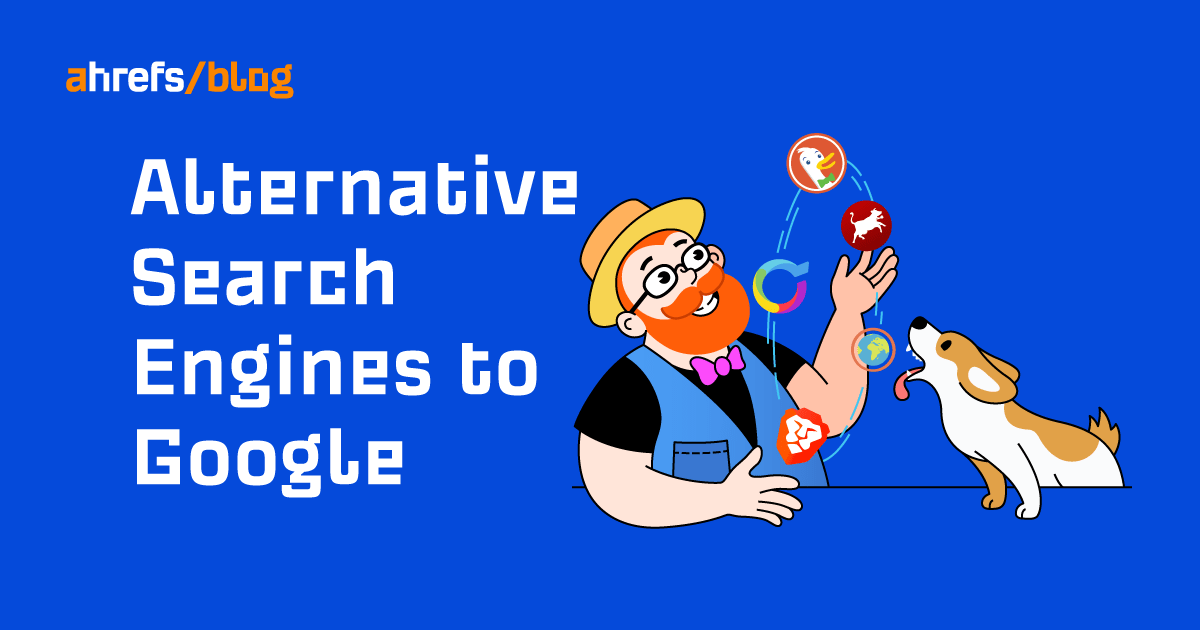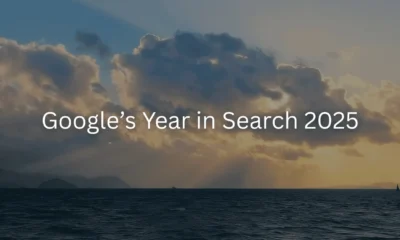SEO
11 Privacy-Focused, Alternative Search Engines to Google

Google alternatives are everywhere, but are they any good?
To answer this question, I poked around a few popular alternative search engines for a day or two and used them for my daily work.
My main judging criterion was how each search engine fared in its commitment to protecting user data and privacy. Here are the 11 that got my approval:
- Startpage
- DuckDuckGo
- Brave Search
- Swisscows
- Search Encrypt
- OneSearch
- MetaGer
- Mojeek
- Qwant
- Ecosia
- You.com

Startpage is effectively Google without the tracking. And for this reason, it takes our top spot.
According to the Netherlands-based search engine, your queries are anonymized before search results are pulled from Google. This means all identifying information is blanketed, including your IP address. No tracking cookies are used either.
Startpage also complies with GDPR, a European Union regulation that protects users’ data. Still, you should know the country is part of the Nine Eyes intelligence alliance, which shares mass surveillance data with eight countries.
Feature spotlight

The Anonymous View feature lets you visit websites from your search results anonymously for both desktop and mobile. It essentially behaves like a (free) VPN.

DuckDuckGo is easily the most well-known private search engine around—and the antithesis to Google when it comes to favoring user privacy. (Though, it does monetize from user searches.)
Your search history is saved in a non-identifiable manner, meaning tracking cookies and personal identifiers, such as IP addresses, are not stored.
This is a huge plus for us despite the fact that results pulled from over 400 sources, including its own crawler (DuckDuckBot), crowdsourced sites like Wikipedia and partners like Bing and Yahoo.
To test its efficacy, I plugged the same keywords into Google and DuckDuckGo—from “covid-19 updates” to “kaws marina bay.” The results were often similar. I found this to be true of breaking news stories too.
A possible downside is that DuckDuckGo is based in the U.S. and, by extension, part of the Five Eyes intelligence alliance—which frequently collects mass surveillance data from internet companies.
Feature spotlight

DuckDuckGo’s “Bangs” feature takes you directly to search results on other sites. For example, typing “!w” and a keyword (e.g., !w singapore) takes you directly to Wikipedia’s page for Singapore.

I like Brave Search for its focus on unbiased results, which it pulls from its own index. The company made the bold move of relinquishing its reliance on Google SERPs in October 2021.
Upon searching for both evergreen content and time-sensitive news, I found the results to be similar enough to Google’s—so long as you allow for anonymous local results.
For more privacy, you can choose to turn this toggle off and conduct manual searches, e.g., “things to do in [location].”

Just like the other search engines here, there is no user profiling and no personalized or targeted ads.
The search engine is part of Brave Software, whose co-founders include Brendan Eich (creator of JavaScript and co-founder of browser Mozilla Firefox) and Brian Bondy (former senior platform engineer at Mozilla).
Feature spotlight

Brave has knowledge panels for quick answers to your burning questions, just like Google.

Swisscows is a Switzerland-based search engine that has its own index for German-language queries. For all other languages, results are pulled from Bing. But this isn’t an issue, given that all search queries are stripped of personal identifiers.
The search engine also omits the use of tracking cookies and geo-targeting.
While Swisscows’ search results certainly aren’t on par with Google’s, I like how family friendly the search engine is: It automatically filters out violent and pornographic search results by way of an enforced feature.
As far as privacy goes, Switzerland is not part of an intelligence alliance, but it does have a Mutual Legal Assistance Treaty with the U.S.
Feature spotlight

Swisscows has “semantic maps” to help you refine your searches.

Search Encrypt sources for its results from its content partners and search engines (including Google, Bing, and Yahoo), albeit in a privacy-safe manner.
Like the other search engines on this list, Search Encrypt anonymizes search queries, doesn’t retain server logs or IP addresses, and doesn’t store tracking cookies.
When it comes to searches, your terms are encrypted locally before being sent to the servers. After 30 minutes of inactivity, your browsing history will be erased.
However, Search Encrypt does store your search data (albeit without any of your personal identifiers) to improve its product performance.
I found its search results comparable to Ecosia’s. So while it’s not quite up there with DuckDuckGo and Startpage, Search Encrypt is reliable enough to be used for all kinds of queries—whether navigational, transactional, or informational.
Feature spotlight

If you’re dissatisfied with the results or want a quick comparison, you can easily do so using the “retry this search” function located at the top of the page.

Owned by Yahoo’s parent company, Verizon Media, OneSearch claims to be a privacy-oriented search engine—with search results pulled from Bing.
No cookies are stored, and there is no sharing of identifiable personal data with advertisers. Having also perused its privacy policy, I found the search engine to be pretty safe.
On the downside, OneSearch profiles you based on query search terms and your imprecise location at the time of your search. So you may get contextual ads—or educated guesses about your interests based on your search keywords. There is no personal profiling or retargeting, though.
What I like are the little extras: the SafeSearch function, the ability to set a more specific location, and the “Advanced Privacy Mode” option (more below).
Feature spotlight

Enable “Advanced Privacy Mode” to encrypt search terms and search URLs, which will mask your search content from third parties.

MetaGer is a Germany-based, open-source metasearch engine. Like Ecosia, its servers run on renewable energy.
Results are pulled from Scopia, Bing, OneNewspage, and OneNewspage (Video), so they’re pretty timely. You can also deselect the search engines used or create a blacklist of websites in the settings.
I appreciate how transparent MetaGer is in its handling of user information, from queries to maps. Still, it’s not without caveats: The search engine stores your full IP address for 96 hours, and your name and email address are kept if you fill out its contact form.
However, it does use an anonymizing proxy that ensures you retain full control over your data.
Feature spotlight

The “Did you know”’ box (to the right of search results) offers tidbits about MetaGer and how to refine your searches. You can also click on the text to view the full list of tips.

Mojeek is a crawler-based search engine with its own search index of over 4 billion pages. This makes it excellent for unbiased information. But it also means there may be limited results, as it doesn’t pull results from other search engines.
Still, I like the search engine for its straightforward no-tracking policy. Your personal data will also never be sold or distributed, which is a huge plus in our books. If you’ve filled its contact form, you can request to have the information deleted too, as per GDPR.
All that said, Mojeek is based in the U.K., which is part of the Five Eyes intelligence alliance—just like DuckDuckGo.
Feature spotlight

The emotion-based search classification feature allows you to enter a keyword and search by emotion.

Qwant is a Paris-based search engine whose search results are powered by Bing and its own web crawler. It’s fully accessible in over 30 countries but, alas, not Singapore.
At last check, my colleague, SQ, found the accuracy of search results to be decent enough. But don’t expect location-specific answers, as Qwant doesn’t track your geolocation.
It also doesn’t collect data or use tracking cookies. But it keeps your IP address for fraud detection purposes. If you prefer complete anonymity, Qwant suggests using a VPN or the TOR relay service.
Like Startpage, Qwant offers GDPR protection. France is, however, part of the Nine Eyes intelligence alliance.
Feature spotlight

There are “search shortcuts” that offer you quick access to specific websites. For instance, using the term “&a books” yields results from Amazon’s books category.
View the list of shortcuts here.

Did you know every action you take on your digital device emits carbon dioxide? And Google plays a big part in it: It’s accountable for ~40% of the internet’s carbon footprint.
To counteract this, private search engine Ecosia donates 80% of its profits to tree-planting projects, or roughly one tree for every 45 searches made. It has also built a solar plant so that its servers can run on clean power.
On the whole, I found its search results to be close enough to Google’s.
Ecosia isn’t fully private. It collects search data and personally identifiable information, both of which are only anonymized after seven days. But we reckon using the search engine is a worthy trade-off, as it seeks to tackle climate change.
Feature spotlight

Your number of searches is shown on a scoreboard (unless you choose to clear your browser cookies), allowing you to keep track of your impact on the environment.

Rounding off the list is You.com. The beta-stage search engine offers a highly customizable experience: Your search results appear on one webpage but are split into several sections that you can rearrange according to your preferences.

To further customize your results, sign up for an account to add and save apps to your dashboard (find out more under Feature Spotlight below). These apps are essentially your preferred sources of information and will show up along with your search results.

While it’s a neat feature, it also means your first-party cookies will be stored for personalization purposes. Alternatively, you’re able to eliminate first-party cookie-tracking entirely by browsing privately or via VPN.
I found the search results for various keywords (such as “ahrefs” and “covid-19 singapore daily cases”) to be comparable to Google’s. And while some results are drawn from Microsoft, You.com maintains that user data is kept safe and not sold to advertisers. The company is carbon neutral too.
Feature spotlight

Personalize your search results by adding apps to your feed—there are scores of categories to choose from. You can even add developer apps, such as Github, to your dashboard.
Final thoughts
While Google dominates the global search engine market, it’s had its fair share of criticism: antitrust issues, creating a filter bubble, violating user privacy, and more.
For users, alternative search engines may be one workaround. But don’t take our word for it; try out the ones on this list to decide what works best for you.
Got questions or comments? Ping me on Twitter.


















You must be logged in to post a comment Login